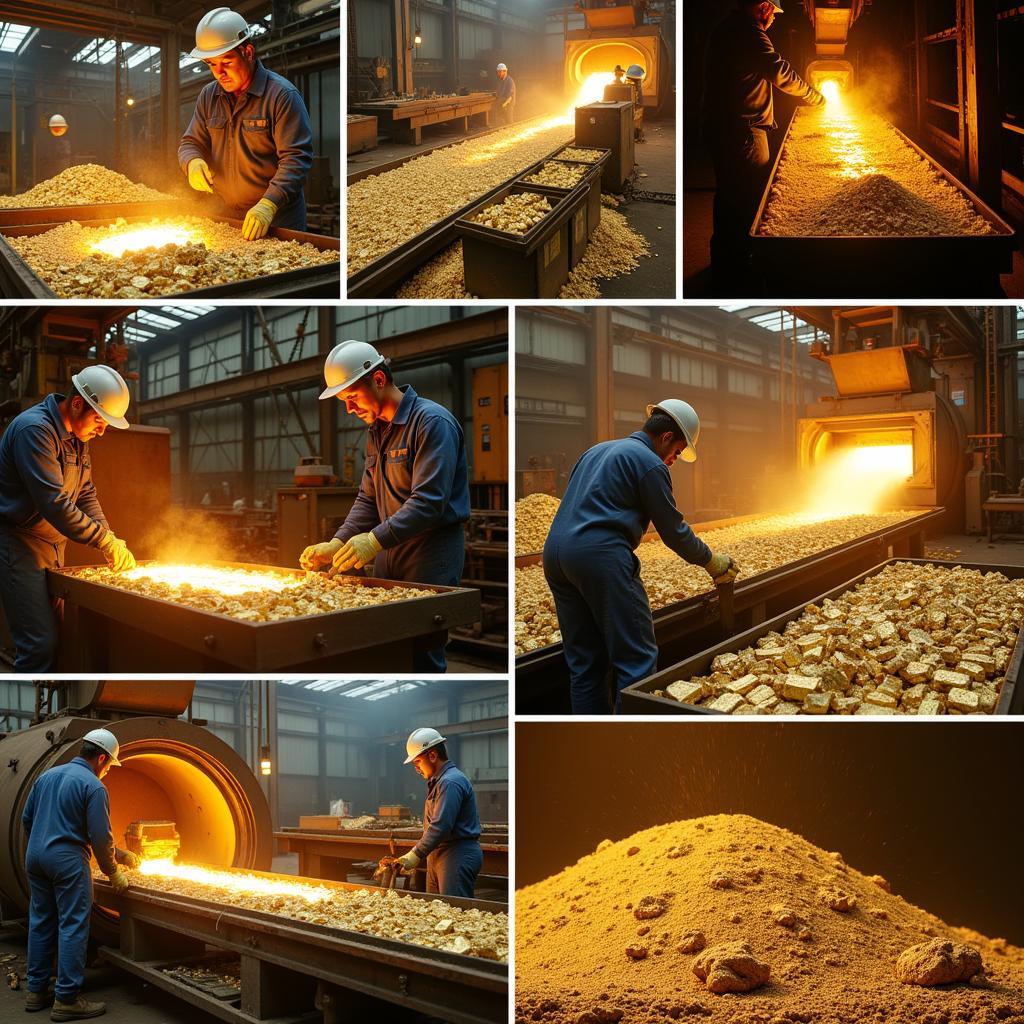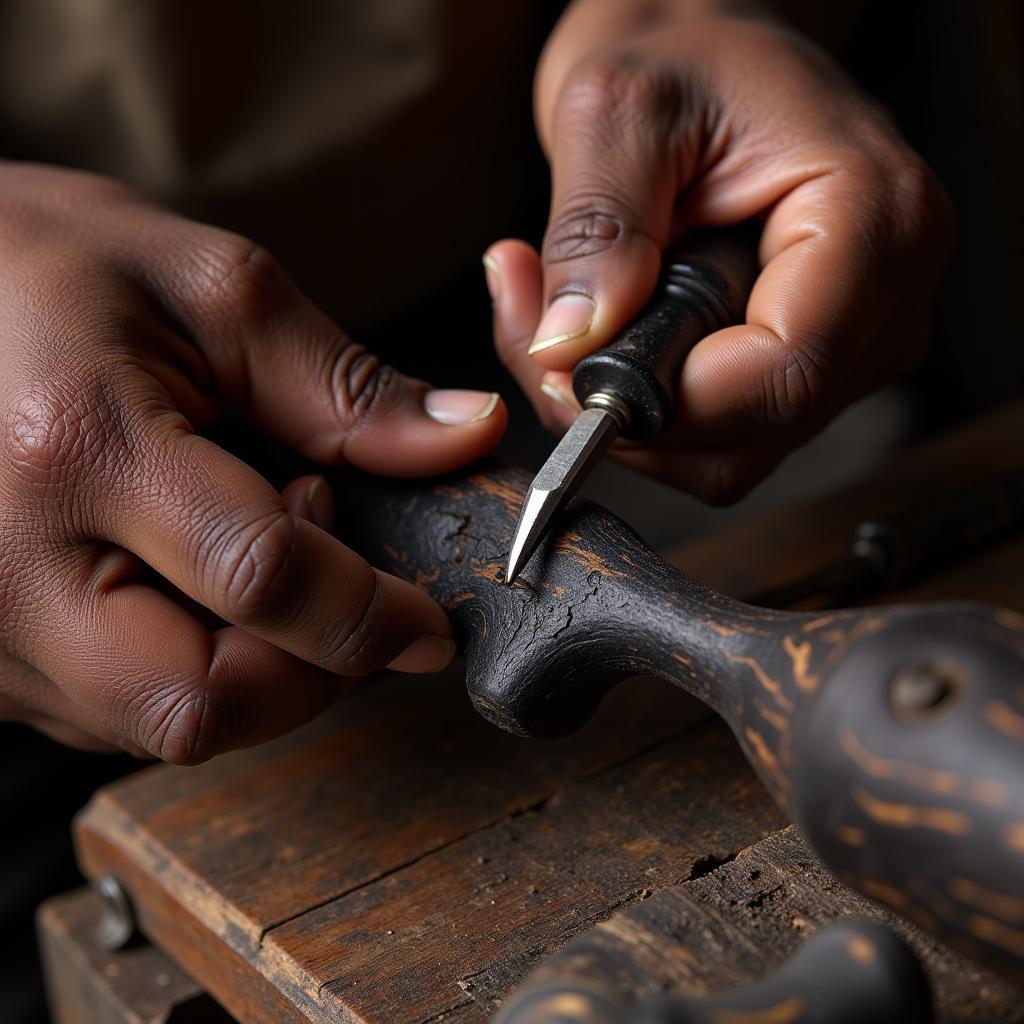Unveiling African Gold Refinery Limited (AGR)
African Gold Refinery Limited (AGR) plays a significant role in the East African gold market. This article delves into the operations, impact, and controversies surrounding AGR, providing a comprehensive overview of this key player in the gold refining industry.
Understanding AGR’s Role in the Gold Trade
AGR is one of the largest gold refineries in East Africa, processing gold from various sources, including artisanal miners, small-scale mining operations, and larger mining companies. The company refines gold to international standards, facilitating its export to global markets. This process adds value to the raw gold, benefiting both the miners and the economies of the countries from which the gold originates. AGR’s presence has created a more formal gold trading system, contributing to greater transparency and potentially reducing illicit gold flows.
The Refining Process at AGR
The refining process at AGR involves several crucial steps. First, the raw gold is assayed to determine its purity. Then, impurities are removed through a complex chemical process. The purified gold is then melted and molded into bars, ready for export. AGR adheres to international standards for gold refining, ensuring the quality and purity of its final product.
 AGR Gold Refining Process
AGR Gold Refining Process
The Impact of AGR on East African Economies
AGR’s operations have had a significant impact on East African economies, particularly in Uganda and Tanzania. The company contributes to government revenue through taxes and royalties. It also creates employment opportunities, both directly and indirectly, through support industries like transportation and logistics. By formalizing the gold trade, AGR has helped to integrate artisanal and small-scale miners into the formal economy, offering them access to fairer prices and better working conditions.
Challenges and Controversies Surrounding AGR
Despite its positive contributions, AGR has also faced challenges and controversies. Concerns have been raised about the sourcing of its gold, with allegations of processing gold from conflict zones and engaging in illicit trade. Furthermore, questions have been asked about the transparency of its operations and the distribution of benefits to local communities. These issues highlight the need for greater oversight and regulation of the gold refining industry.
AGR and its Commitment to Responsible Sourcing
AGR has publicly stated its commitment to responsible sourcing and adherence to international standards. The company claims to have implemented due diligence procedures to ensure that the gold it processes is not contributing to conflict or human rights abuses. However, the efficacy of these procedures remains a subject of debate and scrutiny.
The Future of AGR and the Gold Refining Industry in Africa
The future of AGR and the gold refining industry in Africa is tied to the broader global demand for gold and the evolving regulatory landscape. As international pressure mounts for greater transparency and responsible sourcing, companies like AGR will face increasing scrutiny. The development of robust traceability systems and certification schemes will be crucial for ensuring the long-term sustainability of the industry.
Conclusion
African Gold Refinery Limited (AGR) occupies a pivotal position within the East African gold market. While its presence has brought significant economic benefits, concerns surrounding responsible sourcing and transparency need to be addressed. The future of AGR hinges on its ability to adapt to evolving regulations and demonstrate a genuine commitment to ethical and sustainable practices. Ultimately, the success of AGR and the broader gold refining industry in Africa depends on fostering a responsible and transparent value chain that benefits all stakeholders.
FAQ
- What is African Gold Refinery Limited (AGR)? AGR is a major gold refinery in East Africa, processing gold from various sources and refining it to international standards.
- What impact does AGR have on East African economies? AGR contributes to government revenue, creates jobs, and formalizes the gold trade, integrating artisanal miners into the formal economy.
- What are some of the controversies surrounding AGR? Concerns have been raised about the sourcing of AGR’s gold and the transparency of its operations.
- What is the future outlook for AGR? The future of AGR depends on its ability to adapt to evolving regulations and demonstrate a commitment to responsible sourcing.
- How does AGR ensure responsible sourcing? AGR claims to have implemented due diligence procedures to ensure the gold it processes is ethically sourced.
- What is the refining process at AGR? The process involves assaying, purifying, melting, and molding raw gold into bars, adhering to international standards.
- What role does AGR play in the gold trade? AGR refines gold to international standards, facilitating its export to global markets and adding value to the raw gold.
Common Scenarios and Questions
- Scenario: A small-scale miner wants to sell their gold to AGR. Question: What process do they need to follow?
- Scenario: An investor is interested in AGR. Question: What is the company’s financial performance and outlook?
- Scenario: A journalist is investigating AGR’s sourcing practices. Question: What information is publicly available about AGR’s due diligence procedures?
Further Reading and Related Topics
- The impact of artisanal mining on African economies
- Gold refining technologies and best practices
- International regulations on gold trading and responsible sourcing
When you need assistance, please contact us: Phone Number: +255768904061, Email: [email protected] or visit our office at Mbarali DC Mawindi, Kangaga, Tanzania. We have a 24/7 customer service team.


